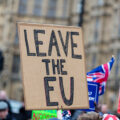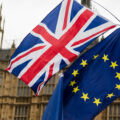Misrepresenting Muslims
Misrepresenting Muslims
Our analyst Muhammad Faisal Khalil looks at the misrepresentation of Muslims in mainstream media and what is being done to stop it.
This article was written by Muhammad Faisal Khalil and reflects his personal analyses and opinions, rather than those of EARS.
British Muslim actor, musician, and activist Riz Ahmed recently announced the creation of ‘The Blueprint for Muslim Inclusion’, an initiative to fund and mentor Muslim storytellers in the early stages of their careers.[1] Fresh off his 2021 Oscar nomination,[2] Ahmed is arguably using his recent international success to advance his activism. Seeing himself more an exception rather than the rule, Ahmed argues that the misrepresentation of Muslims is preventing them from being successful like him. Muslims, he highlights, are in fact negatively represented variously as terrorists, illiterate, violent, and misogynists.[3]
A history against misrepresentation
Ahmed’s activism has already led to a number of efforts that can be seen to help Muslims be better represented in European mainstream media. His 2017 House of Commons speech on diversity in film and TV inspired the ‘Riz Test’,[4] which measures whether film and TV adequately represent Muslims. His 2020 short film ‘The Long Goodbye’ drew sharp critical praise for his filmmaking and journalistic support for his cause.[5] It also gave hope to British Muslim filmmakers and musicians. Their art could be considered genuinely artistic and genuinely British, while acknowledging the difficult experience of Muslims as both colonial and post-colonial subjects.[6] [7]
Misrepresentation is systemic
The announcement of the Blueprint initiative advances Ahmed’s efforts by making the unique declaration that the misrepresentation of Muslims is a systemic problem. To be sure, the 2021 research ‘Missing & Maligned’[8] highlights this clearly. Looking at top-200 grossing films from 2017 to 2019 in the US, UK, Australia, and New Zealand, the study lists words and phrases regularly directed against Muslim characters, such as ‘terrorist’, ‘Paki’, and ‘fundamentalist’.[9] It also highlights that Muslims make up only 1.6% of speaking characters in films.[10]
Misrepresentation is political
Ahmed’s case against the negative portrayal and underrepresentation of Muslims in mainstream media extends beyond the domain of entertainment and art. He argues that it feeds into the problem of Islamophobia, to the point where it informs even politics. “The representation of Muslims on screen feeds the policies that get enacted, the people that get killed, the countries that get invaded,” Ahmed claimed during his announcement.[11]
The connection between misrepresentation and policymaking is a problem drawing increasing scholarly attention, particularly in Europe and North America. A recent study of political and media discourses in Romania, for example, showed how the Brussels attacks on 22 March 2016 led to “dominant rhetorics of conflict between the West and the Muslim world.”[12] The study highlighted how the Romanian mainstream media’s Islamophobic stereotypes led to demonising propaganda against Islam and Muslims by “politicians, cultural figures and opinion leaders.”[13]
Taking responsibility
Leading Muslim artists like Mahershala Ali, Ramy Youssef, and Hassan Minhaj have joined Ahmed in his initiative.[14] But it can be argued that the involvement of a handful of Muslim figures is not enough, particularly if one accepts that the misrepresentation of Muslims is systemic. Mainstream media as a whole has to take responsibility for the narratives that it creates, by better representing Muslims and by offering public accountability against Islamophobia.
This article was written by Muhammad Faisal Khalil and reflects his personal analyses and opinions, rather than those of EARS.
Interested in similar topics? Go to our Dashboard and receive free updates.
[1] Actor Riz Ahmed wants to stop Hollywood’s ‘toxic portrayals’ of Muslims
[2] Actor Riz Ahmed wants to stop Hollywood’s ‘toxic portrayals’ of Muslims
[3] The Riz Test: how Muslims are misrepresented in film and TV
[5] Hard times: British Muslims under lockdown
[6] The Long Goodbye: Were migrants ever really welcomed? (Film Review) – TMV
[7] The Long Goodbye reviewed by Mark Kermode
[11] Riz Ahmed calls for urgent change in ‘toxic portrayals’ of Muslims on screen
[12] Pop, Doru. “Misrepresentation of Muslims and Islamophobic public discourses in recent Romanian media narratives.” Journal for the Study of Religions and Ideologies, vol. 15, no. 44, 2016, p. 33+.
[13] Pop, Doru. “Misrepresentation of Muslims and Islamophobic public discourses in recent Romanian media narratives.” Journal for the Study of Religions and Ideologies, vol. 15, no. 44, 2016, p. 33+.
[14] Actor Riz Ahmed wants to stop Hollywood’s ‘toxic portrayals’ of Muslims






